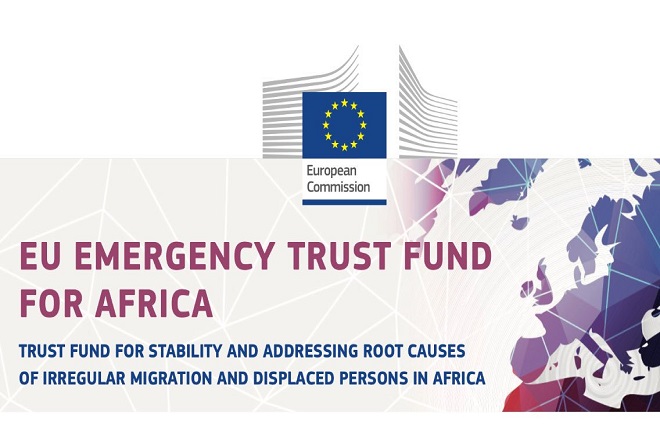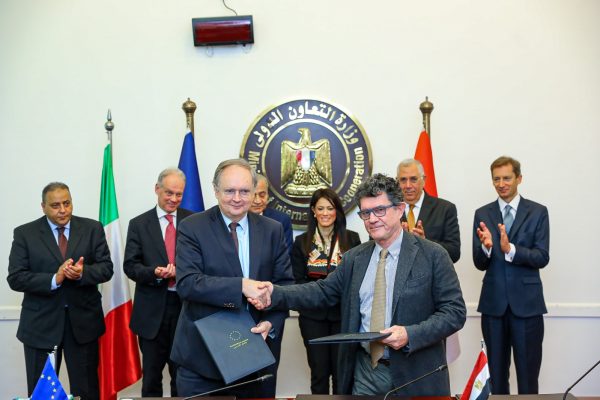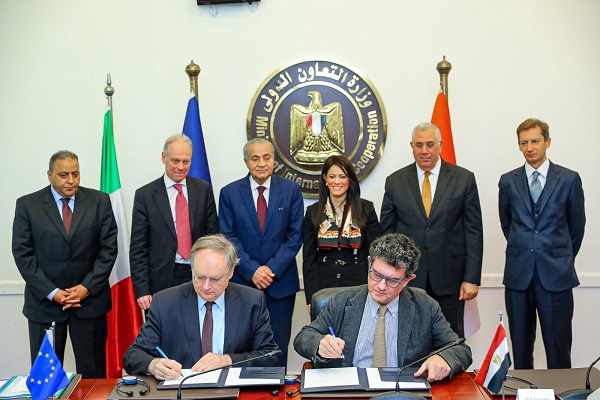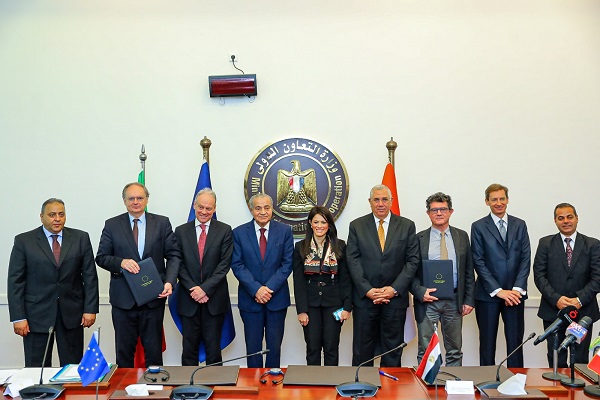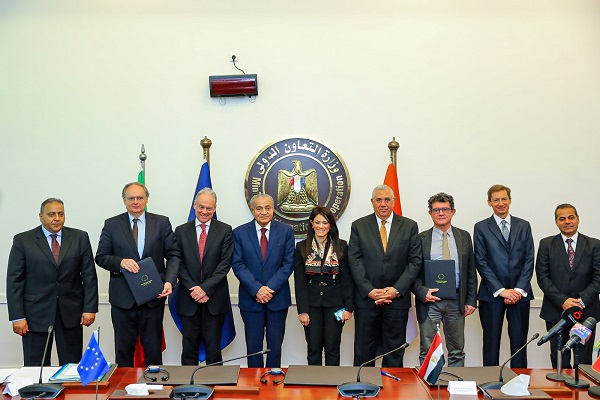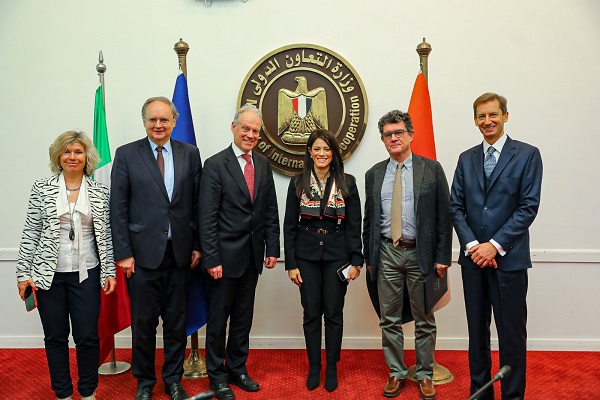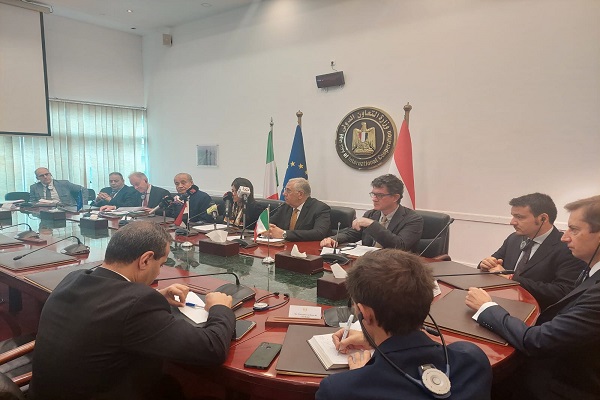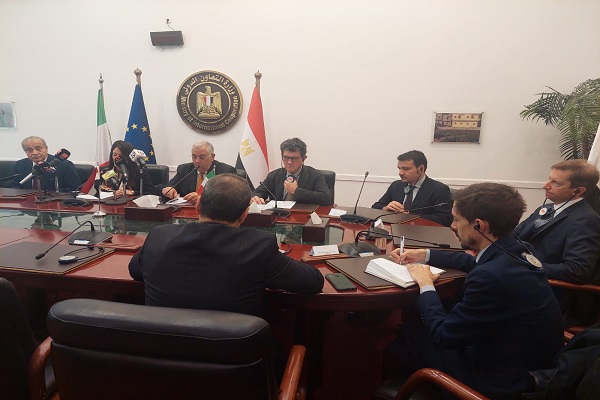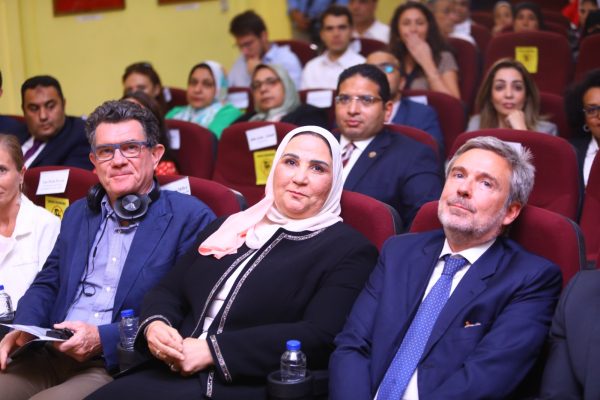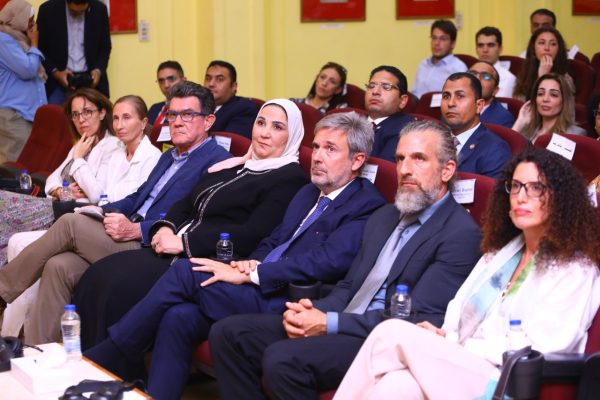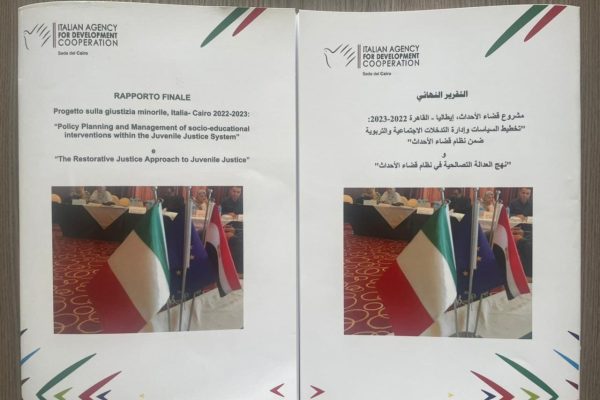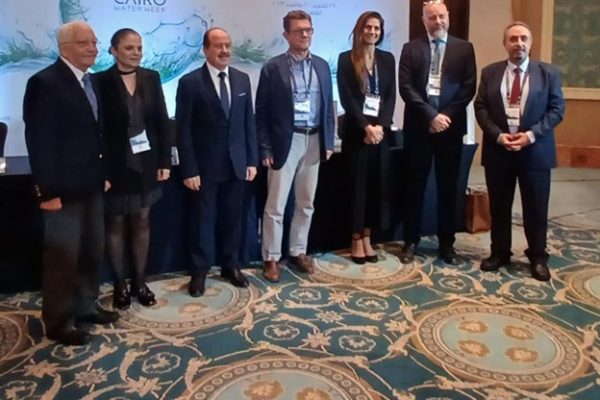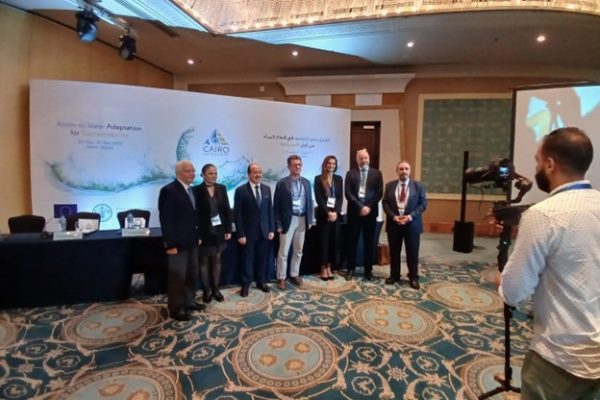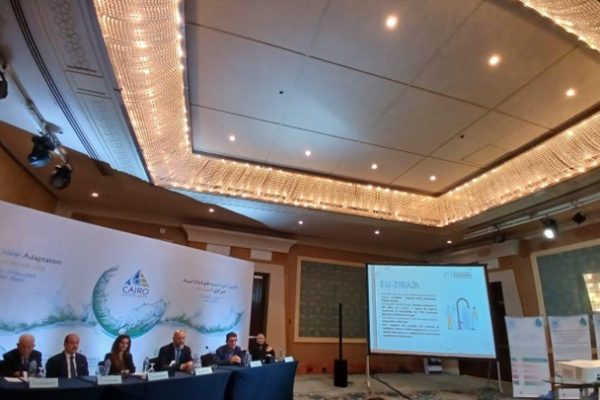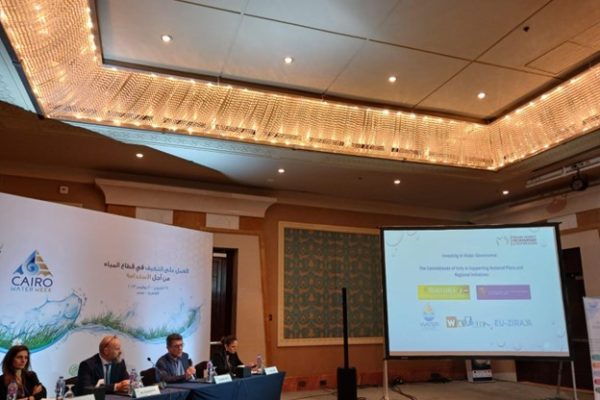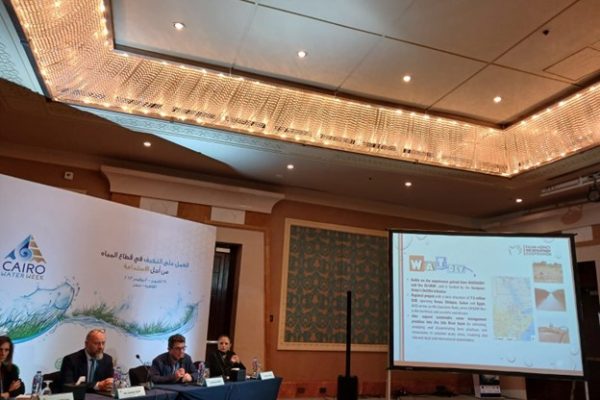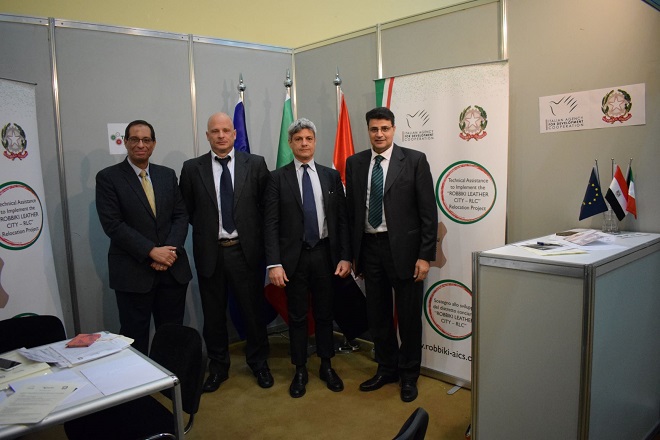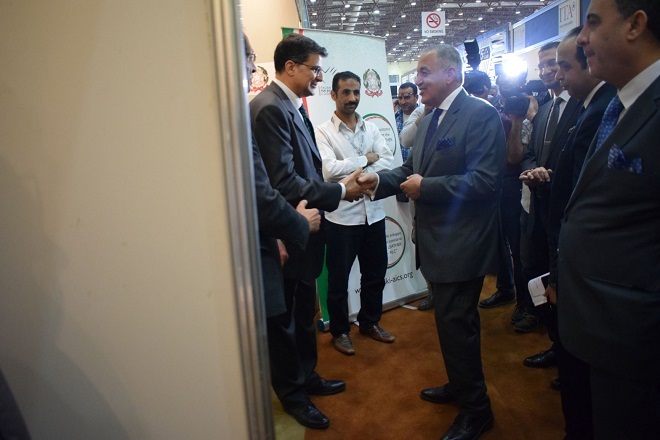Category: news
Human Interests Story – AICS Regional Gender Programme
This regional gender programme “Assistance to and Empowerment of Syrian Refugee Women and girls and vulnerable women and girls of Host Communities in Egypt, Jordan and Lebanon”, funded by the Italian Agency for Development Cooperation (AICS) for a total amount of six million Euro, aims at protecting and empowering the Syrian refugee women and girls and those of vulnerable host communities in Egypt, Jordan and Lebanon.
This Programme specifically focuses on sexual and reproductive health and rights and socio-economic empowerment. Its operational structure includes two multi-bilateral components, implemented respectively by the United Nations Population Fund (UNFPA) and the United Nations Economic and Social Commission for Western Asia (UN-ESCWA), and a bilateral component implemented by two Italian civil society organisation active in the three countries, namely Oxfam and ARCS, in partnership with local organizations.
Here after is a human stories of one of the women who is benefiting from the activities carried out in the safe space places, part of UNFPA component.
A new beginning
No one becomes great except through many experiences and mistakes. The story of this woman, a true story in all its details, proves this saying. A woman married at the age of 30, 17 years ago, and got pregnant right after marriage. However, she had an abortion not long after learning the news. Soon after, she got divorced and started facing the community with no confidence in herself and others.
She remained at home with a minimum level of communication with everyone, until her family, mother and brother, decided to go to Egypt, fleeing the war in Syria. Without children, husband or friends, she suffered from depression, sadness, and loneliness until she was introduced to the CARE Egypt Women Friendly Space in Nasr City.
She visits the space on a frequent basis and registers in many of the courses offered, specifically the satin embroidery course. Enthusiastically, she produced many tablecloths to decorate her room. She also participated in the Crochet courses and did many beautiful pieces. These works relieved her grief and provided her with the opportunity to make friends.
The love she has to the space was an incentive to re-register in new activities, including the psychotherapy sessions that helped her overcome her psychological issues. She also joined the theater workshop that added quite positive characteristics to her personality as increasing self-confidence, self-esteem, and public speaking. Furthermore, she attended awareness sessions on early marriage and positive parenting that added new information that she could pass on to her friends and family. The space has allowed her to overcome her psychological and social issues because of her frequent visit and register in course.
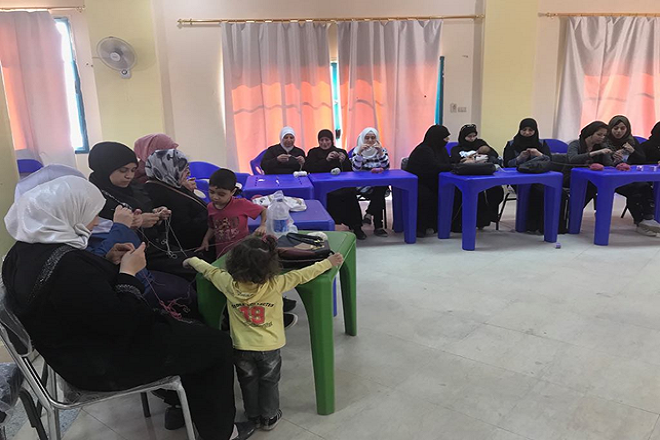
Stories of women empowerment: voices from Upper Egypt with MAIS and COSPE
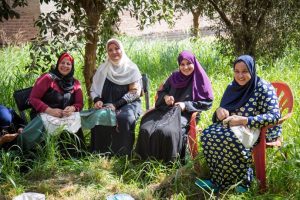 Egypt, Governorates of Sohag and Assiut – Within the Italian-Egyptian Debt Swap Program (IEDS) a particularly important role is played by the initiatives promoted by the Egyptian civil society and by Italian NGOs. On November 2nd, 3rd and 4th the staff of AICS Cairo and the Technical Support Unit of the IEDS, carried out a joint monitoring mission to two initiatives carried out by the NGOs COSPE, project “HOPE – Handicraft and Organic agriculture Producers’ Empowerment” and MAIS NGO , project “Becoming Leaders Project: Creation of working opportunities and sustainable economic development for women in Upper Egypt“.
Egypt, Governorates of Sohag and Assiut – Within the Italian-Egyptian Debt Swap Program (IEDS) a particularly important role is played by the initiatives promoted by the Egyptian civil society and by Italian NGOs. On November 2nd, 3rd and 4th the staff of AICS Cairo and the Technical Support Unit of the IEDS, carried out a joint monitoring mission to two initiatives carried out by the NGOs COSPE, project “HOPE – Handicraft and Organic agriculture Producers’ Empowerment” and MAIS NGO , project “Becoming Leaders Project: Creation of working opportunities and sustainable economic development for women in Upper Egypt“.
Both initiatives aim to promote and improve the activities of different groups of artisans, through trainings and technical assistance, micro-credit services and the creation of a local network to support local handcraft’ production. The projects are both located in Upper Egypt, which has the highest poverty rate in the country and where a highly conservative mentality often limits women’s empowerment opportunities. The initiatives offered new tools to promote greater participation of women in the economic life. Through the projects, novelties have been introduced, such as new designs and new products, innovative production techniques and marketing strategies. As a result, sales have increased, and products have entered successfully into new markets. Moreover, the initiatives have positively affected the protection of cultural heritage and traditional ways of production.
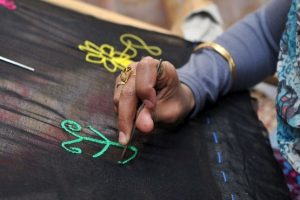 The stories of Nawal and Afef show how development projects not only promote improvements in the dimension of productivity, but also contribute to a real change in people’s lives in terms of greater self-esteem, social recognition, personal fulfillment and happiness:
The stories of Nawal and Afef show how development projects not only promote improvements in the dimension of productivity, but also contribute to a real change in people’s lives in terms of greater self-esteem, social recognition, personal fulfillment and happiness:
Nawal: “I come from a small rural village. I studied at an Islamic school. My mother died, I married my uncle’s son and I lived inside my home for ten years. My husband wouldn’t let me do anything. I did household work and never left home except to take my kids to the doctor. My husband mistreated me. Before I was a living dead! There was never anything new. The morning was the same as the evening. I was like an animal at home. I wanted to go to work, my husband wouldn’t let me. I started going secretly to the training courses of Tally (traditional art inspired to the Pharaonic and Coptic tradition) of the project, thanks to which I was able to start working from home. I concentrated on my work, forgetting about the rest, and began to contribute financially to family expenses. Thank God, I became an active part of the family economy and could therefore decide to buy some extra things for my two children. This changed the relationship with my husband, who started to leave me a little freer. Now it is even better with my family and my brother. I started going out a little more, meeting other people. At one point, I realized that I was no longer alone. I am very grateful to the project, to all the techniques I learned and to Naglaa, the project coordinator, because she was close to me. I hope there are other training courses and the possibility of accessing the micro credit program. ”
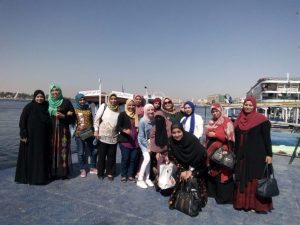 Afes: “I have one son and one daughter. Then my husband died and left me debts. I was always sad, I was crying all the time and there was no hope. In the South of Egypt, we have the tradition that when the husband dies, the wife marries the husband’s brother. The future is in the hands of God, it does not depend on me, but I would like to become a teacher and make a project of my own. Some girls from the village asked me to teach them some techniques and so I gave them a bit of cloth. Thanks to the project, I realized that I had to respect myself, listen to my needs, not let me go and let no one push me around. I realized that I didn’t have to get married again and that I could work. This is what I did: I didn’t get married again and I started working. I took two micro credits, bought the fabric and started my project. I met other artisans and in particular a bag manufacturer named Nura. I went to work with her in Cairo. It was the first time I left my region and went to Cairo. I had the feeling of being faced with a very difficult thing, but then from inside everything became much easier. Since then I no longer wanted to go home or sell products from home, but I wanted to travel. I met a friend who took part in the fairs and I also started to participate to events organized by the Ministry of Finance and others. There was a feeling of success and I gained some more money. Before people didn’t have a big consideration of myself. Then I started to be successful, they started inviting me to television, I’m very proud. Now I hear people in my neighborhood saying: – here lives Afes, the one who goes on television! -. My children are very proud of me. At one of these fairs, we took a picture together and now they show it to all their friends! ”
Afes: “I have one son and one daughter. Then my husband died and left me debts. I was always sad, I was crying all the time and there was no hope. In the South of Egypt, we have the tradition that when the husband dies, the wife marries the husband’s brother. The future is in the hands of God, it does not depend on me, but I would like to become a teacher and make a project of my own. Some girls from the village asked me to teach them some techniques and so I gave them a bit of cloth. Thanks to the project, I realized that I had to respect myself, listen to my needs, not let me go and let no one push me around. I realized that I didn’t have to get married again and that I could work. This is what I did: I didn’t get married again and I started working. I took two micro credits, bought the fabric and started my project. I met other artisans and in particular a bag manufacturer named Nura. I went to work with her in Cairo. It was the first time I left my region and went to Cairo. I had the feeling of being faced with a very difficult thing, but then from inside everything became much easier. Since then I no longer wanted to go home or sell products from home, but I wanted to travel. I met a friend who took part in the fairs and I also started to participate to events organized by the Ministry of Finance and others. There was a feeling of success and I gained some more money. Before people didn’t have a big consideration of myself. Then I started to be successful, they started inviting me to television, I’m very proud. Now I hear people in my neighborhood saying: – here lives Afes, the one who goes on television! -. My children are very proud of me. At one of these fairs, we took a picture together and now they show it to all their friends! ”
More information on the projects:
FB Page project “HOPE” by COSPE: www.facebook.com/pg/COSPE.hopeproject/posts/
FB Page project “Becoming leaders” by MAIS: www.facebook.com/BecomingLeaders/
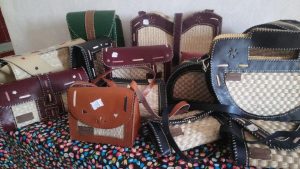
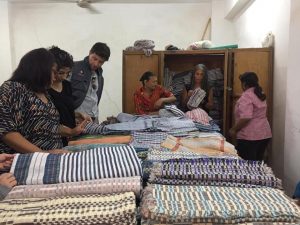
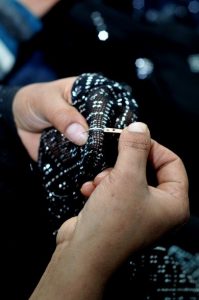
EU Kafi programme: AICS/ EU signed an agreement worth 40 million Euros to support food security in Egypt
AICS and the European Union have signed a contribution agreement worth 40 million Euros to support food security in Egypt. The signing was held last Thursday, the 30th of March, at the premises of the Ministry of International Cooperation.
The signature ceremony was witnessed by H.E. Rania El Mashat, Minister of International Cooperation, H.E. Ali Moselhi, Minister of Supply, H.E. Sayed El Quosair, Minister of Agriculture and the President of the Foreign Ministry’s office of the Egyptian-European partnership Amr Abo Eish. A high-level delegation from Italy has been represented in the meeting: Martino Melli, Head of the Italian Agency for Development Cooperation (AICS Cairo), H.E. Pietro Vacanti Perco, chargé d’affaires at the Italian Embassy in Cairo, Mastandrea Bonaviri Gianluigi, first secretary at the Italian Embassy in Cairo and Jacopo Tavassi, EU Portfolio Coordinator at AICS Cairo. From the EU side, Gert Jan Koopman, Directorate-General of the Neighbourhood and Enlargement Negotiations (NEAR), and Ambassador Christian Berger, Head of the European Union Delegation to Egypt participated in the signature ceremony. AICS will cooperate with the Ministry of Agriculture to support the production of wheat and grains and complete the information control system of wheat in Egypt in a program called EU Kafi “EU Support to Improve Cereal Crops Production in Egypt”.
During the signature ceremony, Melli stated that AICS is proudly the indirect manager of the EU Kufi project and guarantees support, participation, and commitment to the project’s execution and success. The Action aims at supporting Egypt in addressing the food crisis caused by several international and national factors, among which is the Russian-Ukrainian conflict, the subsequent inconsistent flow of supply of wheat to farmers and consumers, the volatility of prices on the international market and climate change.
Melli added that the programme’s primary beneficiaries include the rural communities of smallholder farmers, producers’ groups and producers’ organisations, including targeted rural women and family organisations. In addition, Kafi will benefit the most vulnerable segments of the population of Egypt and those at risk of food insecurity.
The OECD – Dac toolkit for financing civil society in partner countries is online
The Funding Civil Society in Partner Countries toolkit promoted by the Organization for Economic Cooperation and Development (OECD) is also online on the website of AICS’ Office in Cairo.
The document offers practical guidance to adherents of the Recommendation of the Development Assistance Committee (DAC) on enabling civil society for development cooperation and humanitarian assistance.
These operational guidelines inform key funding choices in development cooperation partner countries to strengthen local leadership and ownership and foster a strong, independent and diverse civil society.
Cairo –Closing event of the project “Restorative approach to juvenile justice: socio-educational models of social reintegration and alternative measures to detention” at the Italian Cultural Institute in Cairo, on 11 September 2023
On 11 September 2023, AICS Cairo organized the closing event of the project: “Restorative approach to juvenile justice: socio-educational models of social reintegration and alternative measures to detention”, implemented in Egypt since 20 October 2020.
The event was hosted at the Italian Cultural Institute of Cairo and was opened by the Excellencies Michele Quaroni, Ambassador of Italy to Egypt and Nivine El-Kabbaj, the Egyptian Ministry of Social Solidarity-MoSS. UNICEF Country Representative, M. Jeremy Hopkins, UNODC Deputy Regional Representative, Ms. Mirna Bouhabib, Terre des Hommes Egypt Country Representative, Ms. Laure Baudin were present as the project implementing partners.
Partners, including MoSS shared achievements on all project outcomes; to cite a few: the amendments to the Egyptian Child Law of 2008 to enhance alternative measures to juvenile detention; the improved coordination of multi-stakeholders on juvenile justice; the provision of support to the reintegration of children in conflict with the law; and the training of national experts working in the juvenile justice sector in Egypt.
AICS Cairo expressed its satisfaction for the cooperation with Egypt in general and referred particularly to the visit to Italy in July 2023 of an Egyptian delegation and to the series of training on restorative justice for juveniles delivered by two Italian experts in Cairo in 2022-2023. A brief video on the products generated during the training was showed and a report on the exchange between Italy and Egypt on juvenile justice was distributed.
Representatives of the Egyptian Ministries of Interior, Justice and of the Office of the Public Prosecutor attended, as well as representatives from Care Institutions, the private sectors, families, and children. These latter shared messages and briefs on their experience throughout the project.
The UNICEF-UNODC led project component run for 27 months, while the AICS direct management project component run for 35 months.
AICS CAIRO to participate in the Cairo Water Week
Last Wednesday, November 1st, the Head of AICS Cairo, Dr. Martino Melli, participated in the sixth edition of the Cairo Water Week, presenting the initiative “Capacity Development to Foster Sustainable Management of Water Resources in Egypt and in the Region: the Water Knowledge Project”.
Melli underlined how AICS Cairo has supported national plans and regional initiatives on water management and the sustainable utilisation of natural resources, a sector where Italy has extensive and internationally recognised expertise. Melli explained, “Cairo Water Week is a prime opportunity to position water management at the forefront of climate action”.
Moreover, he emphasised the importance of collaborative cross-border partnerships for achieving SDG 6: “Ensure access to water and sanitation for all”. During his presentation, he highlighted how recent initiatives of AICS Cairo as MARSA DEV, EU-JRDP, WATDEV, WATER KNOWLEDGE, and EU-ZIR3A, have assisted Egypt in environmental protection and climate action while creating shared prosperity among communities.
The Italian programme funded by the European Union Emergency Trust Fund for stability and addressing the root causes of irregular migration and displaced persons in Africa is ready to be signed!
Cairo-September 2018-The Multi-Educational Programme for Employment Promotion in Migration-affected Areas (MEPEP) falls under the scope of the “Enhancing the Response to Migration Challenges in Egypt Programme which is funded by the European Union Emergency Trust Fund for stability and addressing the root causes of irregular migration and displaced persons in Africa.
With a planned three-year duration, the action aims at enhancing economic and equal opportunities, in particular for vulnerable groups by improving the quality of the Technical and Vocational Education and Training (TVET) system in Egypt.The Action targets the Sharkeya Governorate as it has been identified – according to a recent research conducted by the National Center for Sociological and Criminological Research – as one of the top-ten Governorates in Egypt that boast the largest number of Egyptian youth who wish to leave Egypt and illegally migrate to other countries. In particular, the 10th of Ramadan Industrial Zone resulted being the most relevant intervention area due to the presence of a dynamic Egyptian and non-Egyptian industrial force on which the creation of a high-level and market-oriented TVET Center can have the major impact.
The Implementation of the activities will be assigned to a TVET provider already operating in the country with an extensive experience in delivering innovative and alternative TVET, to be selected through a call for proposal.
The Italian Agency for Development Cooperation (AICS) – Cairo Office will work in close cooperation with the Ministry of Education (MoE) and the Ministry of Industry and Trade (MoTI), namely the Productivity and Vocational Training Department (PVDT), as the main national entities mandated in the area of TVET.
Currently, the project formulation phase is concluded and the documents need to be validated by the European Union before the signature of the delegation agreement.
